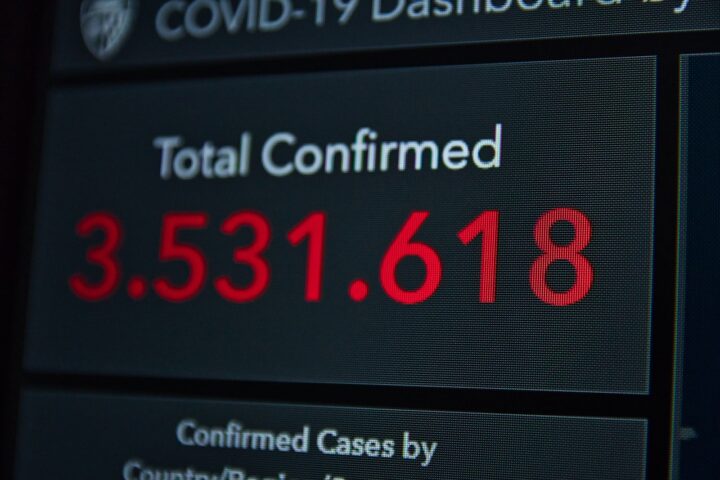 If you have been in the retail business, especially the offline retail business, then you probably remember the power of trends. Sadly, trends are mostly reserved for the online sphere these days, but there are still a few trends kicking around that may help offline retailers. Modern digital signage trends are just one of them.
If you have been in the retail business, especially the offline retail business, then you probably remember the power of trends. Sadly, trends are mostly reserved for the online sphere these days, but there are still a few trends kicking around that may help offline retailers. Modern digital signage trends are just one of them.
Every few months, there is a different and new buzz online about digital signs. Be they supposedly revolutionizing fresh-food ingredient tracking with the use of scanned blockchain protocols, or be they having AI added to train ticket dispensers only for them to start discriminating against people (turns out they were hacked).
Some people think that the digital sign trends will die off in a few years, but before you throw out your digital sign brochures, take a look at these four unbeatable reasons to invest in digital signs.
1. They Are Future-proof
The 2020 pandemic proved that digital signs are future-proof. After a while, companies needed a way to let people in their stores while maintaining social distancing. The companies that already used digital signs found this easy. They had signs telling how many people may enter a store, how many people may approach the tills, and they replaced everybody from changing room attendants to car parking guards.
Even if you don’t see another pandemic in the near future, you have to admit that digital signs can easily solve various future problems and hurdles with little effort. In short, they are light-up posters that move and can have sound. Even if the world creates robots to do all the shopping, digital signs will provide good interface mediums. If the world goes AR (Augmented Reality), then digital signs and suitable projectors will allow AR users and non-AR users to have similar buyer experiences.
If you don’t believe any of those facts, then go watch a movie. Take a look at how many futuristic movies use digital signs. From the 3D signs in Back to the Future (which now exist BTW), to the talking signs in Minority Report. Movie and science-fiction writers have been predicting the heavy use of digital signs in our future for years.
2. They Cost 86% Less Than They Did Fifteen Years Ago

Despite President Trump’s efforts, the Chinese are holding down their currency like a woke bully holds down a kid with two parents. As a result, the cost of audio-visual devices is a fraction of what they used to cost even ten and fifteen years ago.
We all knew that our modern version of TVs were going to become less expensive over time because they are very popular. When things are popular, they drop in price over time. However, Chinese manufacturing, with its shaky moral business practices and unhindered pollution, means that costs have fallen far, far below what they would have done if they were being made in any other country on the planet. The Chinese infrastructure alone would take 50 years to recreate in another country.
If you were to ask the economists from 20 years ago how much a TV would cost today, even if adjusting for inflation and no significant stock market drops or wars, they would have still guessed a cheap 44-inch TV would cost over $1000. The same technology that goes into making massive and cheap TVs is the same technology used to make digital signs. In fact, many stores find it easier to buy cheap TVs to use as digital signs rather than buying commercially available digital signs. These days, digital sign producers are only focusing on interactive and touch-screen signs because if people simply want an in-door sign, then they buy a cheap TV and mount it where it is needed.
3. They Bridge The Online-Offline Gap That Affects Gen-Z Buying Decisions
Do we need to bridge the gap between online and offline shopping and business transactions? This is the question being asked by millennials and the decision makers from generation X. Do you know whom they sound like when they ask these questions? They sound like the baby boomer generations who asked if we really need to bother with this TV advertising lark.
- Generation X is anyone born from 1965 to 1980.
- Millennials is anyone born from 1981 to 1996.
- Generation Z is anyone born from 1997 to 2012.
The reason why millennial and generation X decision-makers do not understand the importance of the online-offline gap is that they were alive when Smartphones didn’t exist and when they were coming into existence. For generation Z, having a Smartphone in their life is no different to Millennials having the Internet.
The online-offline gap goes like this. Imagine you are born into a world of the Internet, Smartphones, and very sophisticated online shopping. This is a world where you can lay in bed at 9 pm and order an Uber through an app on your phone, go collect a VR headset that you just ordered, and have your app-ordered pizza delivery person waiting for you when you get home. Using the internet to shop, order services, and gain information is so heavily ingrained in the minds of generation Z that if you want their attention, you need to create a bridge between the Internet and real life. Like dealing with attention deficit children, you need to create a transitionary period before moving their attention from one task to another.
Digital signs create this bridge. How you use this as a general manipulation tool is up to you, but try this, try running your online adverts on your digital signs. Even if your online adverts are just poster image adverts that you run across the top of affiliate websites. Try them in your store. Want to be more creative? Simply run a QR code on your digital sign with the title, “Today’s in-store discount codes” and watch how many younger people scan the code without question or thought.
4 – McDonald’s Created a Case For Them Affecting Future Stock Prices
!!Wait a McRibbing Minute!! Did we just go from an article that (frankly) promotes the idea of digital signs, to an article about stock prices?
Yes, we did, and here is why. McDonald’s rolled out digital sign menus and tablet menus as quietly as a mouse with a piece of stolen cheese. All around the world, we started to see tablet devices and then digital signs. The signs were touch screen, they took orders, and they took payment. They were the perfect use-case example of the online-offline gap. They pretty much took their app and presented it in their restaurants.
From mid-2018 to now, the stock price has gone up consistently (with a slight dip during the 2020 pandemic lockdowns). There were many small reasons for this, from the downfall of other restaurants to the introduction of takeaway delivery. Yet, the fact that the starting point occurred in mid-2018 when the digital tablets were being introduced on a wider scale, to post 2020 when digital signs were everywhere, the fact is that McDonald’s started a trend that affected their stock price.
The reason it affected their stock price was that it decreased waiting times (no talking to the server) and decreased staff costs (hiring fewer people working on the till and taking orders). When something is introduced that affects the bottom line in such a significant and systemic way, then the stock market has to take notice.
Look at drone deliveries. They were supposed to do the same thing, but the idea never really “Took off” in any significant way. Ergo, the Amazon stock price was free to tank like a Ukrainians in US Abrams war machines.
McDonald’s has carved the idea of digital signs into stock market history. As a result, companies that introduce the use of digital signs, and then prove their effectiveness with favorable earnings reports, are going to see an uptick in their stock prices. Unless they are piping toxic waste into kiddie parks, the stock price benefits can only be positive (albeit not permanent, but still favorable to any stock-price-conscious company.



















Great post!! Thank you for this informative post.